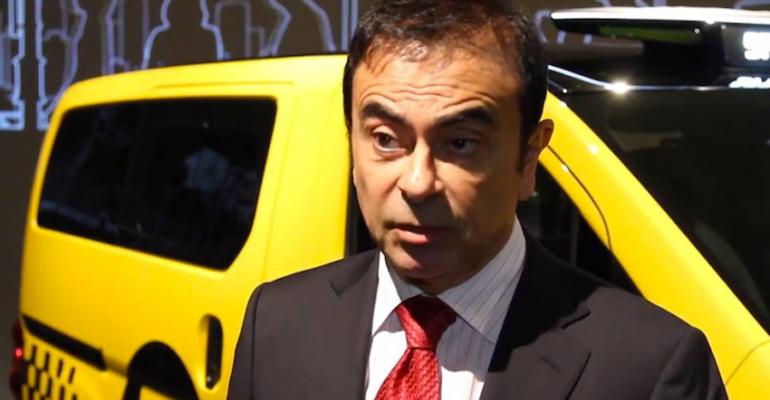NEW YORK – Nissan CEO Carlos Ghosn says specifics regarding the auto maker’s plan to shift production of Infiniti models away from Japan will be revealed soon.
“This is an interesting case, where you have most of the sourcing in Japan, none of the sales in Japan and today having to source in Japan when the yen is ¥82:$1 is obviously not the right system,” Ghosn says in a meeting with media at the New York auto show.
The high cost of assembling vehicles in Japan makes it hard to compete on price with rivals, including the Germans, who are building in multiple markets to hedge against currency fluctuations, the CEO says.
At the Los Angeles auto show late last year, Executive Vice President Andy Palmer said Nissan would keep Japan as a production base for larger Infiniti models, but Ghosn makes no mention of that strategy here.
Uncompetitive pricing is blamed for sagging Infiniti sales of late. The brand saw March U.S. deliveries slump 13% from year-ago, with declines across all existing model lines. An exception is the new JX cross/utility vehicle, which added 540 units in its first month on the market.
Almost all Infinitis are built in Japan. The JX again is the exception, with production housed at Nissan’s Smyrna, TN, plant.
Ghosn doesn’t say if it is certain more Infiniti production will shift to the U.S., but he notes Nissan has a policy to build where it sells and that North America and China are key Infiniti markets.
China is such a big piece of Infiniti’s strategy to increase global sales to 500,000 units annually by spring 2017 that the brand moved its headquarters last week to Hong Kong from Japan.
The Nissan CEO also blames the high cost of building vehicles in Japan for the relative lack of success of Nissan’s Leaf electric vehicle. When planning began for the Leaf in 2006, the exchange rate was ¥110:$1.
With Leaf production beginning late this year in Smyrna and the EV’s lithium-ion batteries set for output there in August, profitability will improve, although consumers may not necessarily benefit.
“The price of the Leaf will drop is one option,” Ghosn says. “The second option is the profit of the Leaf will go much higher.”





